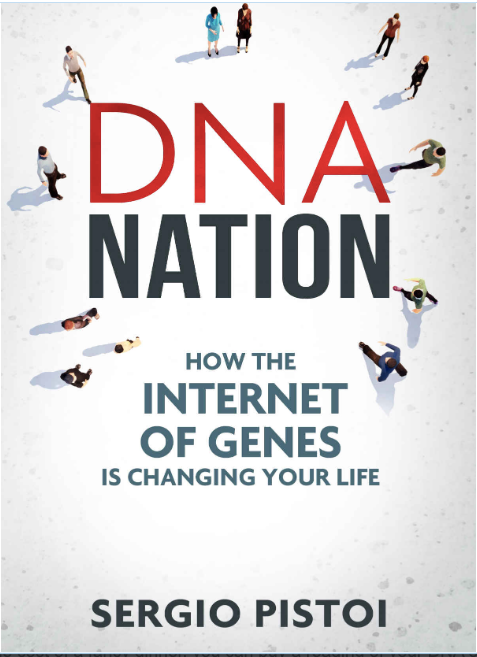
In the final chapters of his crucial and remarkable book, Sergio Pistoi observes that "Identical twins are the genetic equivalent of factory-made cookies: they have the same DNA ... They look very similar, and yet in many regards they are distinct" (p. 169). He then adds, "With the advent of the familial search, your DNA talks for you and your family, regardless of what you would like do (p. 180). That pretty much captures the long and the short of DNA Nation: How the Internet of Genes is Changing Your Lives: DNA figures in a lot of our life experiences, but it by no means dictates everything. And, as much as we might like to control who sees our genome and who does not, the revolution in consumer genomics has let that cat well out of the bag.
As we saw earlier in this book, some of the results of that DNA cat-at-large are beneficial. DNA profiles of relatives have helped police nab serial killers who have committed their crimes decades earlier. It's helpful to know we have a genetic propensity for an illness even if the likelihood of its finding expression in our lives is less than 20-percent. It could be gratifying to find a relative we had no idea existed. But the same garrulous DNA makes us vulnerable to a new kind of marketing based on knowledge of our genetic predispositions to this food or that, and anything we may buy. And in the hands of a totalitarian government, well, when that combines with non-DNA data we may make public, the sky's the limit in terms what that government might do to anyone it deems an enemy of the state (a term, I would add, that Trump repeatedly uses to describe the free press in America).
Further, this situation will only get more perilous in the future, when, Pistoi notes, "All children will have their DNA sequenced at birth and will keep their genetic file during their entire lifetimes, as if it were a social security number" (p. 199). The solution? There is none, other than awareness that this revolution is already occurring. Awareness is the necessary condition for taking whatever action we can to safeguard our privacy which, Pistoi aptly notes, "is a volume knob, not an on/off switch. Everyone has a level of privacy that suits their needs” (p. 196).
For example, I have a level of privacy that suits my need to acquaint more of the world with my science fiction, my scholarly writing, and my music. You the reader of this review will likely have a level that's different. The great virtue of DNA Nation is that it alerts us to be more careful and deliberate in deciding upon what level of privacy we need and want to pursue.
If some of this sounds like science fiction, that's because it currently is. But Pistoi's book makes clear that the ratio of reality and science fiction regarding the potent mix of DNA and social media in our lives is daily moving further into the reality part of the dial. Still, Pistoi observes that no science fiction author - "even the most daring writer - has envisaged a social network based on our genes" (p. 205). He's right, and, given his zest for knowledge and talent as a writer, I urge him to write it.
See also: DNA Nation (Part 1, Chapters 1-5): Reconfiguring Your Human Family ... DNA Nation (Part 2, Chapters 6-13): The Extraordinary Revolution and Its Intrinsic Limitations ... DNA Nation (Part 3, Chapters 14-17): Two-Edged Swords

No comments:
Post a Comment